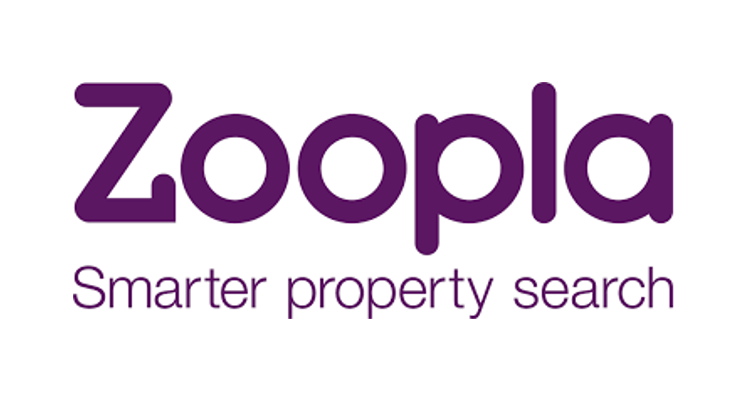Westminster Council Embraces the Worst Aspects of NIMBYism
January 3, 2025
In May 2025, Westminster Council will seek to ban ‘For Sale’ signage across the borough, adding to the growing list of localist powers that are being misused by councils through tacit nods to NIMBYism and the creation of new revenue streams.
Misuse of Localism Powers
Abuse of ‘localism’ powers is not uncommon. In 2024, the National Federation of Builders (NFB) highlighted opposition to homes because no dog-walking routes were offered. This issue was resolved through a chargeable planning condition to provide dog walking route maps to new build occupants.
In another case, planners requested apple trees to be planted, only to force a change of decision, in case the fruit was either used as a projectile or be left to rot so becoming a slipping hazard.
In 2023, the NFB wrote a piece titled “No houses, no roads, no pizza, and definitely no ice cream!”, which highlighted how several local planning policies had strongly entwined localism with NIMBYism and demonstrated how localism has now extended its tentacles into shaping local people’s lifestyle choices and how local business should operate.
Westminster knows ‘best’
Under Article 7 of the Town and Country Planning Regulations 2007, Westminster Council already has a ban on ‘For Sale’ signage in some conservation areas, and so to ensure there is not a ‘two tier’ system, it is no seeking to expand this ban to the entire borough while ensuring the rules remain indefinite, so they do not have to revisit the decision for another fifteen years.
The proposal cites ‘substantial harm to visual amenity and local character,’ abuse of deemed consent rules’ and meeting their ‘Fairer Westminster’ objectives as the main reasoning. Additionally referencing climate change – due to the carbon impacts of producing signs – and the growth of online advertising as further grounds.
However, it is clear to see that Westminster Council’s arguments don’t hold water:
- Unauthorised ‘For Sale’ boards have decreased dramatically from 511 in 2013 to just 18 in 2023. Since 2021, 21 violations have been resolved informally.
- Although some estate agents will list their entire stock on online platforms such as ‘Rightmove,’ most do not because of the high costs, and some do not use them at all.
- Boards not only highlight that a property is available for sale, which in some areas can be rarity, but serves to advertise locally employing businesses.
- Unlike large agents and their franchisees, small local estate agents struggle to afford local premises across boroughs, and so rely on signage to advertise both their properties and their businesses.
- ‘For Sale’ board are re-used, and estate agents we spoke to told us the existing ban meant they changed their advertising practices to more leaflet drops, a practice which not only uses a far higher amount of paper, energy, and plastic but sees thousands of tonnes of paper immediately thrown away.
- Councils have begun setting local design codes for shop frontages to ensure they are ‘in keeping with local character,’ yet despite having ‘Advertising Design Guidelines,’ Westminster Council has not proposed to extend that to ‘For Sale’ signs.
On revenue raising, the fee for advertising planning permissions can range between £235 and £648, and with the Government proposing that councils set their own planning fees, one should not be surprised if councils use advertising of ‘For Sale’ signs to raise revenues as well as instil NIMBY sentiments.
This is certainly the case for ‘planning conditions’ on builds, which are meant to tackle certain local issues or requirements, such as acceptable brick colours or landscaping, Yet when planning applications already include that information, an individually chargeable planning condition will still be included, with any modifications to satisfy the changing winds often accruing a subsequent fee.
It is time to call out Westminster Council as NIMBY’s on this issue. They have not sought any ‘in character’ solution. Cite climate change as a concern, but their proposal will see increased energy use, more waste and reduced re-useable materials. Their whole premise will curtail local businesses by increasing all their costs, and consequently giving a leg up to big companies.
Westminster Council talk about tackling ‘Fairness’ and the two-tier system, but the borough’s housing crisis paints a different picture. The average house price is £960,000. More than 4,000 people are on its council housing waiting list, with 23 families waiting over two decades. 2,204 people have been stuck in temporary accommodation for at least ten years.
Meanwhile, the council is sitting on more than £185 million of unspent Section 106 funding, £129 million of which is allocated for affordable housing.
Test for the Government
As Secretary of State for Housing, Communities, and Local Government, Rt Hon Angela Rayner Secretary would decide whether the ‘For Sale’ ban is extended, and to her credit, she has taken a firm stance on opposing localist abuse.
However, if this Westminster Council proposal does land at her desk, it will be a litmus test of whether Labour is serious about growth because it understands the damaging nature of NIMBY decision making on the long tail of business. Or, whether its plan is to continue presenting itself as YIMBY champions by approving schemes which already met regulations but need a little help to overcome NIMBY hurdles.
You May Also Enjoy
10 budget patio ideas for beginners in landscaping
Creating an inviting outdoor space doesn’t have to break the bank. With a bit of creativity and some elbow grease, you can transform your backyard into a relaxing retreat. Whether you’re looking to build a brand-new area or revamp an existing one, these budget-friendly patio ideas will inspire you to create a stylish and functional…
Read More Top 5 Irrigation System Providers in the UK
A thriving allotment or kitchen garden is the pride of all plant lovers and allotment growers. However, maintaining an allotment or garden is not for the faint of heart. You need to put in a lot of effort, from mulching and composting to regular watering and weeding. Apart from watering, everything else needs to be…
Read More Mortgage affordability on course for 2021 levels
Mortgage affordability could be on course to return to its most manageable level in almost five years, according to exclusive new analysis from INTEREST by Moneyfacts, as easing rates and rising incomes restore some breathing space for borrowers. The research shows that average mortgage payments, which peaked at close to half of gross monthly income…
Read More City house prices soar
The latest research from Property DriveBuy reveals that house prices in UK cities are significantly outperforming both coastal and countryside locations, rising by an average of 3.4% over the past year, well ahead of the wider UK market which has seen growth of 2.5%. And while countryside homes have also seen a price increase, the…
Read More Buyers return to housing market
2026 starts in line with 2024 with buyer demand 9% down on last year’s strong start Buyers are returning to the housing market at the start of 2026 as confidence improves and mortgage rates fall, but a growing number of homes for sale is giving buyers more choice and reshaping market conditions, according to Zoopla’s…
Read More How will tenants be affected by the incoming Renters’ Rights Act?
On 28th October 2025, the Renters’ Rights Bill was passed into law, and it is now the Renters’ Rights Act. Changes to legislation resulting from this new Act will take effect from May 2026. This will affect landlords and how they let out their property, and it is worthwhile being aware of how it affects…
Read More 








